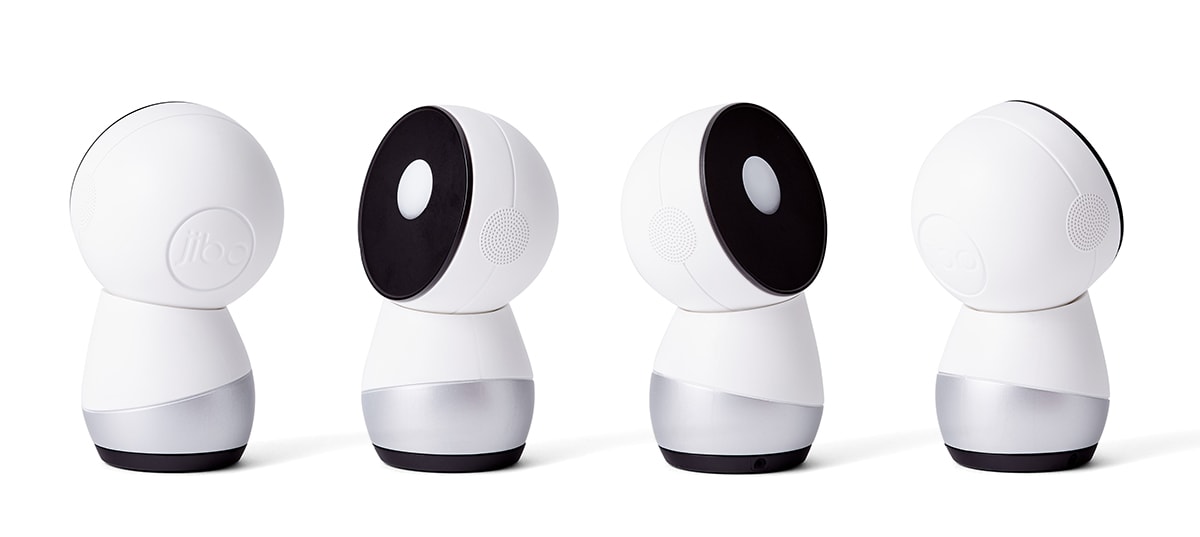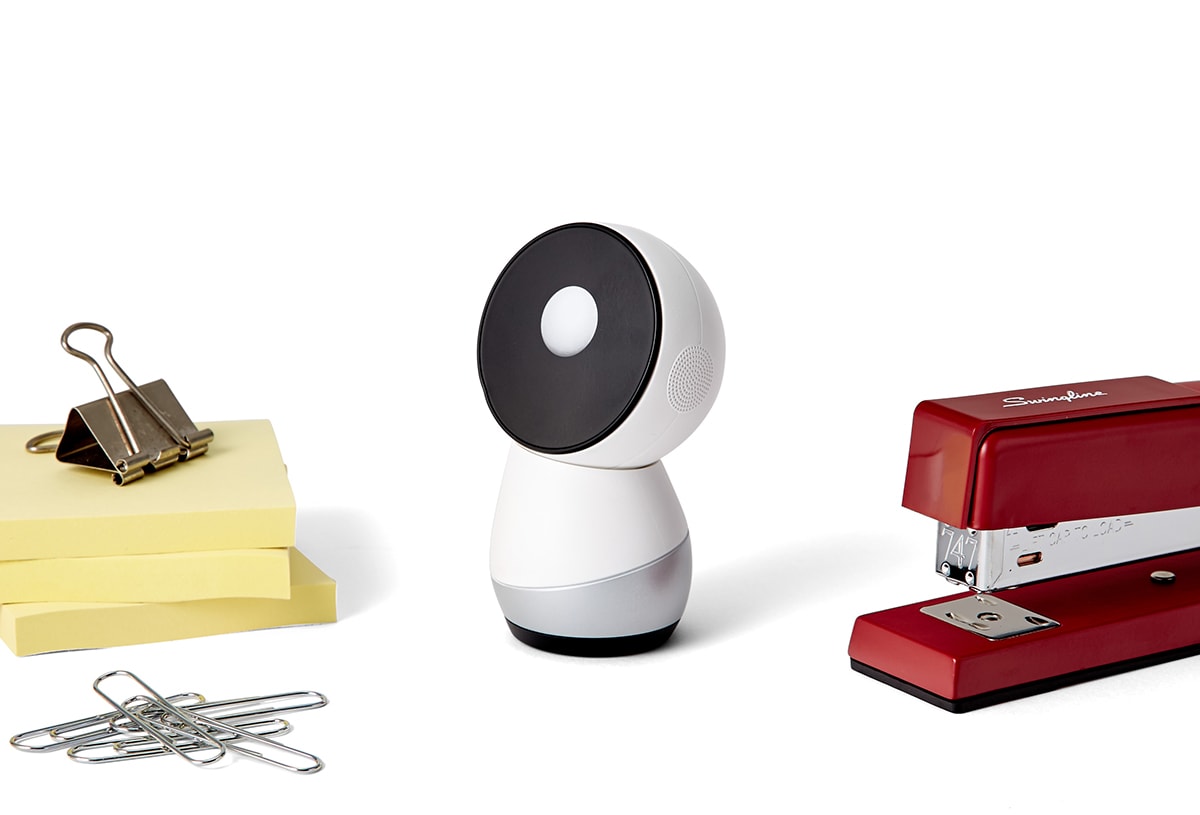
- Weight: 5oz
- Size: W2.2xD2xH3.6in
- Material: PVC
- Lifespan: 2 years
- Funding: $73M
- Units shipped: ~6000
- Retail Price: $899

The Story
Jibo was an expensive tech-optimist social robot companion with an expressive face, an anthropomorphic body powered by a 3-axis motorized pivot system, and little to no practical functionality. Jibo was one further step in the evolution of social robots–a lineage including the Aibo robot dog–and perhaps the last before anthropomorphic robots became inextricably linked with the military machines of companies like Boston Dynamics.
Created by Cynthia Breazeal, Jibo was an Indiegogo success story that raised $2.5 million on the platform in 2014. As with so many tech-optimist (and tech-gonzo) crowdfunded products, Jibo hit the Indiegogo pitfall trifecta: delivery delays, an over-scoped and under-delivering product design, and knockoffs produced faster than the original team could execute.
By the time Jibo began shipping in 2017, it had earned itself a significant degree of enmity. Nonetheless, Time Magazine named it one of 2017’s “best innovations of the year.”
Ultimately, Jibo’s demise stemmed from drastic product-market mismatch: offering a thousand-dollar robot companion, when all the American consumer public wanted was cheap-as-dirt robot slaves. Amazon Echo launched shortly after Jibo’s Indiegogo campaign. Echo featured most of Jibo’s “social” features (it could talk), and was ten times cheaper. It was also, in contrast to Jibo, a bonafide smart device with an internet connection supported by Amazon’s massive ecosystem.

Jibo’s death did cause substantial mourning among its user community. Perhaps overbuilding on a 3-axis skeleton in the pursuit of humanness is its own reward. In the end we can only view it as a casualty of a fundamental tech-optimist misconception: that the world wants its robots to love, when in truth it mainly wants them to kill.


